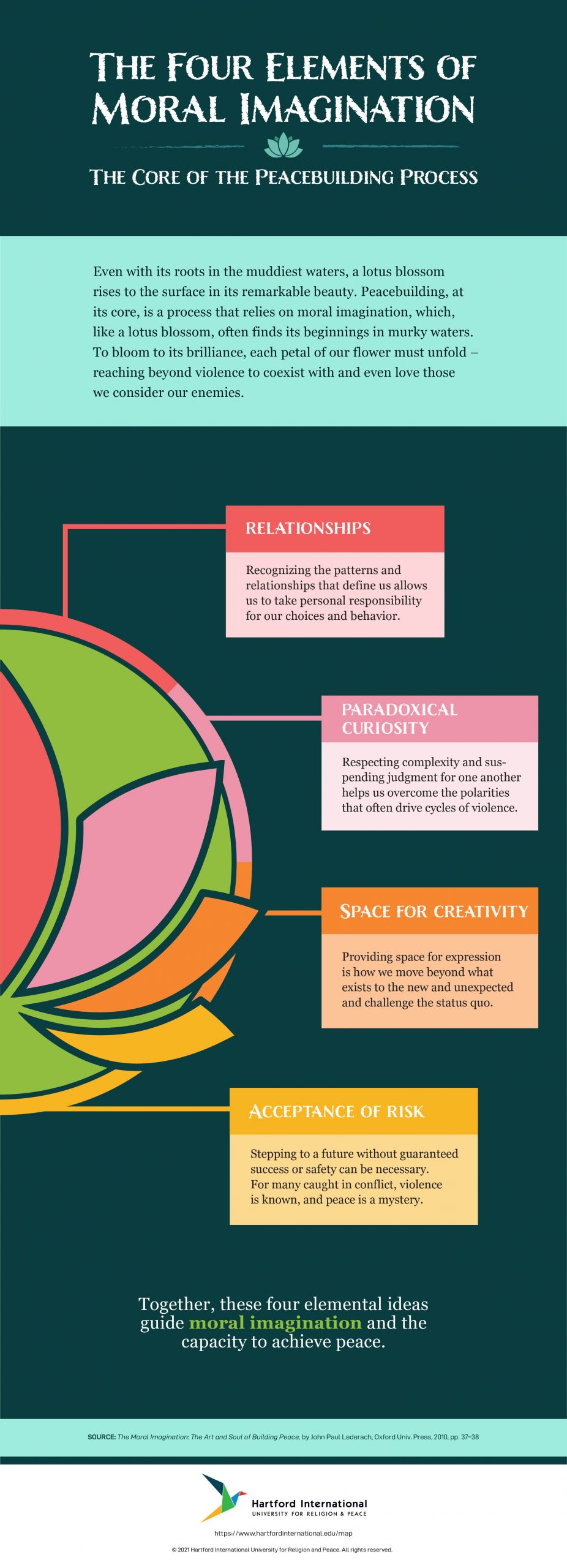Bridging Divides: Exploring Moral Imagination in a Polarised World
FACT-CHECKED ✅
As we navigate an increasingly polarised world, the concept of moral imagination offers a powerful tool for fostering understanding and cooperation across political divides. By emphasising empathy, respect, and open dialogue, we can cultivate the skills necessary to envision better outcomes for all. This article explores the significance of moral imagination, and provides practical strategies for fostering these essential skills in young people, ultimately aiming to bridge divides and create a more civil society.
 |
| Moral imagination offers a powerful tool for fostering understanding and cooperation. (📷OpenAI) |
Understanding Moral Imagination
Moral imagination is the capacity to envision alternatives that prioritise mutual respect and common good. As defined by researchers Darcia Narvaez and Kellen Mrkva, it involves “an imagining individual [who] uses abstraction capabilities with emotions engaged”, considering diverse perspectives to arrive at what is right and beneficial for all involved. This capacity is vital in our current climate, characterised by deep ideological divisions and heightened partisanship.
The foundation of moral imagination lies in a “heart view,” which encourages us to engage emotionally with others while seeking the common good. This approach challenges simplistic thinking and fosters ideological complexity, steering us away from rigid tribalism towards a more inclusive understanding of our shared humanity.
 |
| (📷hardtfordinternational) |
The Role of Education in Fostering Moral Imagination
Educational settings provide a unique opportunity to cultivate moral imagination among young people. By integrating discussions around empathy, civil values, and moral reasoning into curricula, educators can prepare students to engage thoughtfully with differing viewpoints. As seen in programs like Braver Angels, which seeks to rebuild trust across political divides, moral imagination can manifest in numerous forms, creating spaces for dialogue and understanding.
In the classroom, fostering moral imagination can take many shapes. For instance, incorporating role-playing activities allows students to step into the shoes of others and explore the motivations behind differing beliefs. This practice not only enhances empathy but also sharpens students’ ability to articulate their own views more clearly and persuasively.
Empathy as a Tool for Understanding
Empathy plays a crucial role in the development of moral imagination. It allows individuals to recognise and appreciate the experiences, needs, and values of others, even when those perspectives differ from their own. Engaging in emotional and cognitive empathy can transform how we perceive political opponents, helping us to humanise “the other” and understand the broader context of their beliefs.
Programs that emphasise empathetic engagement can help students, even at a young age, develop habits of civil discourse. For example, teaching young students to write letters to difficult individuals in their lives can encourage them to practice understanding and resolving conflicts. When these principles are applied to political discussions, students often uncover unexpected insights into their peers’ assumptions and values.
Bridging Differences Through Civic Engagement
During challenging times, such as the COVID-19 pandemic, the need for civic engagement and moral imagination became even more critical. As students return to in-person learning, creating opportunities for dialogue about shared experiences can help build trust and connection. Activities like pen pal exchanges, where students from different political or geographic backgrounds communicate, allow for the exploration of differences while also revealing common ground.
In one notable example, students from a politically diverse school district engaged in a pen pal exchange with students from a predominantly red state. Through this correspondence, they found shared values and interests, despite differing political beliefs. This exchange fostered understanding and cultivated a willingness to engage respectfully with contrasting viewpoints.
The Pledge of Civility: A Step Toward Understanding
Introducing pledges of civility, such as the “With Malice Toward None” pledge, can serve as a concrete step toward promoting moral imagination. Inspired by Abraham Lincoln’s call for empathy and understanding, this pledge encourages individuals to commit to respecting others, regardless of political differences. Such commitments can help create a more tolerant environment, particularly among adolescents who are still developing their moral identities.
Research indicates that promoting empathy and compassion for those outside one's social in-group is crucial for moral development. Educators have a unique opportunity to intervene in this process, helping students to extend their moral horizons and recognise their capacity for care.
Exploring Common Ground for a Better Future
The quest for moral imagination is not merely an academic exercise; it has real-world implications for the future of our society. As we face challenges such as political polarisation, climate change, and social injustice, cultivating an environment that values moral reasoning and empathy can lead to more constructive dialogue and collaboration.
By encouraging young people to practice moral imagination, we equip them with the tools necessary to navigate a complex world. They learn to envision alternatives and work toward outcomes that benefit all, regardless of political affiliation. This process ultimately contributes to a more civil society where individuals engage with one another with respect and curiosity.
 |
| Moral imagination is the capacity to envision alternatives that prioritise mutual respect and common good. (📷demmelearning) |
As we confront ongoing societal challenges, the need for moral imagination is more pressing than ever. By prioritising empathy, understanding, and civil discourse in educational settings and our communities, we can pave the way for a more harmonious society. Now is the time to invest in the moral development of future generations, empowering them to engage with the world around them thoughtfully and compassionately. Through collective efforts, we can begin to bridge the divides that separate us and cultivate a future grounded in mutual respect and understanding.
⭐⭐⭐
*Assisted by OpenAI. Edited & fact-checked by @jorgebscomm.


